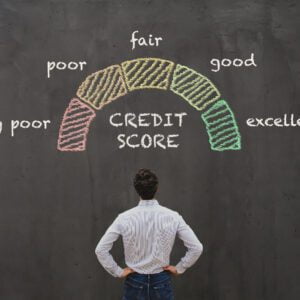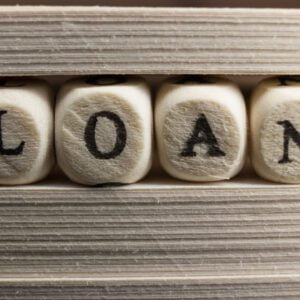Personal Loans vs Revolving Credit
Need an extra boost to help you through the Christmas holidays?
Stuck on how the heck you’re going to pay for that upcoming reno to the ‘perfect for first home buyers’ house you’ve bought?
Wouldn’t mind some extra cash for the car that’s broken down just as your monthly rent is due?
If any of those or something close sounds familiar (and we all know that feeling of how on Earth am I going to get through this invoice feels) and you’re considering taking out a loan or getting some additional credit to help out, Pioneer finance is here to help figure out what your options are and what might suit your situation best.
Money has always been a taboo subject, but Pioneer Finance believes there is nothing wrong with asking for a bit of help. What’s even more important is understanding your options to empower you to make the right choice for your circumstances. Two realistic options when money is tight, or you have a big purchase coming up are getting a personal loan or receiving credit.
What is a Personal Loan? What is Credit? And what’s the difference between them?
A personal loan and credit have some similarities. To put it simply, both offer you money that you have to pay back in the future and include interest.
However, there are some very clear differences.
Credit Scores
Before we kick things off and delve into the different nuances between credit and personal loans, one thing to understand is a credit score.
Credit scores are your own personal rating, based on several factors like bill repayments, court judgements (if you’ve been declared bankrupt) and if you’ve met or missed payments on any previous loans.
Credit scores determine how likely it is you’ll pay bills on time or how ‘credit-worthy’ you are. The rating ranges between 0-1000. Common ratings are between 350-800. A good score is considered 500+ and bad scores can even go below 0.
If you’ve never applied for credit before it’s likely you won’t have a credit score. In New Zealand, you can get a free copy of your credit report from either Centrix, illion or Equifax to find out where you sit.
It’s also helpful to know, banks generally won’t lend to anyone with a score under 500. The same goes for finance companies if you’ve got a score under 350. However, both banks and finance companies take into account so much more than just your credit score, so don’t stress over it too much.
Credit scores can also increase by meeting repayments of credit and loans on time. The same in reverse, fail to meet repayments and your credit score will go down.
Now you’ve got a handle on that, let’s see whether a personal loan or credit could be the right choice for you.

credit score concept, poor or excellent,
Personal Loans
What is a personal loan? Personal loans are considered instalment loans. This means you get a lump sum of money that you’d use for a specific upcoming purchase (or purchases).
Personal loans are better for one-off big expenses, like buying or getting repairs on a car, home improvements, consolidating debt (that’s just paying off a range of other debts you may have, such as credit card bills from lots of lenders and putting it into one easy to manage place) or any other large one-off payments you might have.
A personal loan is for an agreed amount and the repayments and interest are clear from the get-go. You could have monthly repayments or a lump sum repayment if you know you’re able to repay it all quickly and the terms when you take out the loan allow for that.
When considering a personal loan, you need to keep in mind a couple of things.
First, there often is a service fee that covers the work of the lender and administration for repayments.
Second, personal loans can come in two forms, secured and unsecured. Often if your credit rating is lower, or due to several other factors, personal loans will be ‘secured’.
Simply, a secured loan means when you borrow money, you agree that the lender will own a piece of your property until you’ve paid it back. If for some reason you can’t meet repayments anymore, the lender can sell that property and keep the value of what you owed. You can secure a loan against a house, a car, your bank account and much more.
The alternative is an ‘unsecured loan’, which just means the lender doesn’t technically own any property of yours as you make repayments. These loans are more uncommon, especially for larger sums.
The only time secured loans could be an issue is if you can’t pay back what you’ve borrowed. For more Information go to our Personal Loans Page.

Personal Loans can often be a better choice than credit!
Credit
Credit on the other hand is slightly different. Credit, which most commonly comes in the form of a credit card, allows you to make smaller and more frequent purchases and payments that can be paid off relatively quickly (if you make your repayments on time).
Credit doesn’t arrive in your account as a lump sum like a loan. It works by a lender offering a limit that you can spend up to. That means the amount you borrow and what you spend within that limit is up to you. However, you aren’t able to go over your allowed credit limit.
Credit is known for its higher interest rates and stricter repayments (extra interest if you don’t meet them on time). The repayment amount changes based on what you’ve spent. The interest levels on what you owe can also vary.
Sometimes credit can be the best option and that’s particularly the case if you’ve got a good credit score and qualify for a 0% interest rate, if you repay within 30 days. That means any amount you spend and pay back within 30 days will gain 0% interest. In those cases, you’re just paying back what you’ve spent.
However, if you aren’t given an option of 0% interest or a 30 day grace period (maybe because of your credit score, your age or your income), interest can add up on the daily and sneak up and surprise you.
Lots of people often get tripped up by this. The thing about credit (and particularly credit cards) is that it’s so easy to spend. You can use it electronically almost everywhere, the amount used also adds up very quickly. If you’ve come to the end of 30 days or your usual payment term and haven’t paid back all that was spent (+ interest if you’re not on a 0% deal), you’ll often face a much higher interest rate than with loans. And worse, if you are late to repay, you’ll also get charged extra interest on top of what you owe.
The tricky thing about credit is that you could end up paying back what you initially spent for years to come. If you know you’re a person who meets repayments quickly and is great at keeping on top of bills, credit can be wonderful… if a changing repayment amount and possible growing interest isn’t something you’re after, a personal loan for a specific event or upcoming purchase is probably a better option for you.

Credit Card purchase’s are easy but you can also be caught up in scams.
Pros and Cons of Credit and Personal Loans
Okay, that was a lot of information, so let’s sum up:
Personal Loans
| Pros | Cons |
● Lower interest rates, ● Money in one lump sum, ● Easier for large purchases like cars, renovations, holidays and homes, ● Simple and clear repayment obligations. | ● Sometimes include a service fee, ● Can sometimes require a higher credit score than credit cards, ● Can be secured on your personal property as collateral. |
Credit
| Pros | Cons |
● Ongoing rolling credit balance that charges interest when money is used, ● Easy for smaller day to day purchases, ● If repaid on time can help increase bad credit scores, ● Sometimes 0% introductory interest rates and 30 days payback for people with good credit scores. | ● Interest is usually significantly higher than personal loans, ● Interest and credit fees can add up very quickly, meaning you’re paying back what you’ve spent for long periods, ● Less predictable repayments based on what you’ve spent, rather than a set amount, ● If repayments are late, credit scores can quickly decrease. |
If credit or a personal loan sounds like something that you could use, or if you just want to know more about any of the services we offer, drop us a line to get in touch with the team at Pioneer Finance today!
We’re here to help.
More information on Personal Loans can be found here www.personalloan.co.nz